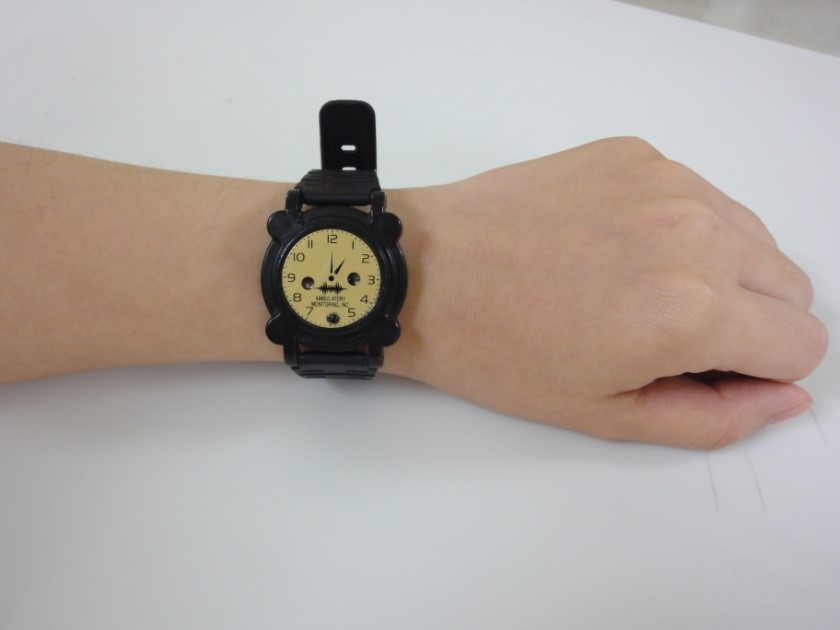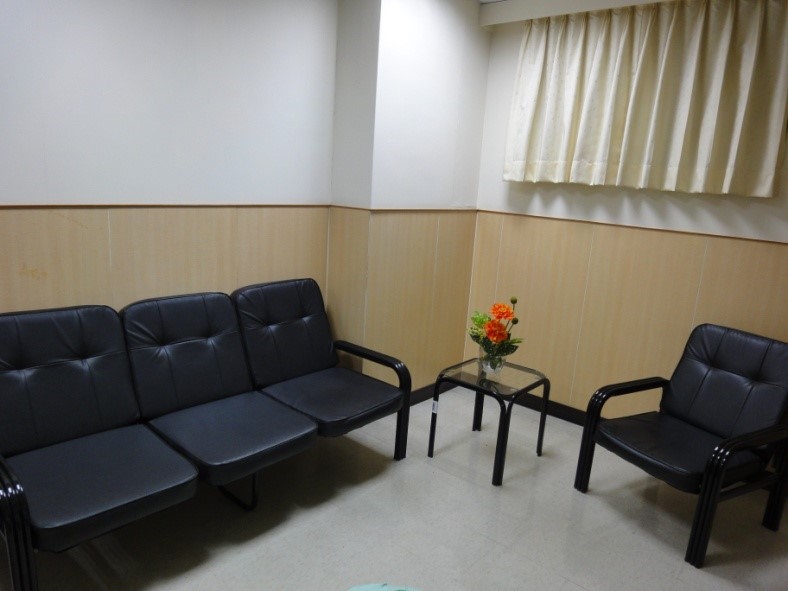Department Introduction
Sleep Medicine Center | Our Speciality
:::






Our Speciality
Holistic approach to Sleep Disorder Care
The center joins up with other specialists, including from pulmonary medicine, neurology, psychiatry, otolaryngology, dentistry, cardiology, pediatrics, rehabilitation, family medicine, nutritional medicine, and integrated traditional Chinese medicine (TCM) and Western medicine.

The center has advanced examination equipment, including a 64-channel polysomnography, wrist-watch-like blood oxygen concentration monitor, continuous percutaneous carbon dioxide monitor, actigraph, and periodical record analysis system for detecting various sleep-related problems and providing multiple treatment methods, including professional sleep psychologist counseling, the latest continuous positive airway pressure (CPAP) respirator, and automatic and double CPAP device.
According to the needs of medical treatment, the center can refer the patients to the divisions of Otolaryngology and Plastic Surgery for receiving operations, or to the Dentistry Division for oral appliances, with the aim of providing patients with the most perfect treatment and humane care.
About 10 days after the sleep examination, the patients can pay a return visit to see the exam report. The medical team will provide patients with a complete medical consultation for follow-up treatment.
In addition, the hospital is characterized by the combination of TCM and Western medicine. The combination features not only the conjunction of medicine and diet, but also a fusion of the essence of traditional medicine and modern medical knowledge, thus providing patient-centered holistic medical services. At present, the Sleep Medicine Center's integration of TCM and Western medicine focuses on dietetic regulation and plan, in order to improve the quality of sleep.
Most studies have found that melatonin plays an important role in the control of the sleep-waking cycle. Melatonin deficiency can cause emotional depression or seasonal emotional disorders. Melatonin can block the formation of amyloid plaques in the brain, prevent Alzheimer's disease, reduce low-density cholesterol, increase high-density cholesterol, and prevent cardiovascular diseases. Moreover, it contributes to bone metabolism and limits the loss of bone calcium. Melatonin can improve the hormone decline in old men, so it is beneficial to elderly people’s sex life. If properly increasing melatonin during its attenuation period, we can strengthen the function of the pineal gland in an attempt to not only make people sleep well but also regain their health and youth.
The center integrates Chinese and Western medicine, focusing on dietary adjustment and arrangement and ameliorating and regulating melatonin secretion via diet, life, and exercise. Melatonin can be obtained from milk, sesame, pumpkin seeds, almond nuts, walnuts, ginger; fruits and vegetables such as tomatoes, onions, cucumbers, cherries, bananas; cereals such as oats, rice, and corn.
The hospital with the integration of Chinese and Western medicine will continue to explore in an evidence-based manner traditional Chinese medicine such as: Wendan Decoction, Suanzaoren Decoction, Tianwangbuxin Dan, or Chaihujialongmu Decoction for adjusting the constitution, improving insomnia or the quality of sleep.
Excellence Treatment
The center has significant success in the treatment of snoring, sleep apnea syndrome, and narcolepsy.
Most of the reasons for snoring are resistance to the upper respiratory tract, arising from a structural problem in the back of the throat or the nose, which in the long run may cause harm to the body and even complex complications.
Severe snoring may be accompanied by the risk of apnea, causing heart trouble, hypertension, cerebral hemorrhage, stroke, and other diseases, and even apnea or sudden death in the middle of the night.
The high risk groups of sleep apnea are usually people with habitual snoring, a short, thick neck, obesity, a short or retracted chin, long uvula, and tonsil hypertrophy, of which men are more prone to develop than women, especially overweight people, older people, smokers, and drinkers.
Patients have repeated temporary respiratory arrest during sleep, which may occur hundreds of times per night, ranging from a few seconds to a few minutes each time.
Respiratory arrest may cause anoxia and reduce the concentration of oxygen in the blood, which in the long run will affect the blood pressure, heart and cerebrovascular function, and increase the risk of cardiovascular disease, cerebrovascular disease, and diabetes.
Currently, the most accurate diagnosis of sleep apnea syndrome is from polysomnography. We suggest that treatment should include lifestyle modification, such as weight reduction and lateral sleep, and the use of CPAP equipment, oral appliances or upper respiratory tract surgery (e.g. microwave radiofrequency, nasopharyngeal adenoidectomy, and tonsillectomy). Experienced sleep specialists in the center can help patients make the right choice.
Narcolepsy is a recurrent, uncontrollable, brief deep sleep attack in closed time that cannot be thoroughly understood so far. The main cause is that the central nervous system has a problem in regulating sleep-wake cycles. .
Its clinical symptoms include: 1) daytime sleepiness that occurs when a person is carrying out monotonous work such as driving; 2) cataplexy which may cause a person to suffer physical collapse due to a sudden loss of muscle tone and strength; 3) sleep paralysis (a state of general weakness) which is when, during awakening or falling asleep, one is aware but unable to move; 4) hypnagogic hallucinations which is the experience of visual, auditory, tactile hallucinations in a transitional state between wakefulness and sleep.
Sleep experts in the center diagnose narcolepsy by using polysomnography (PSG) and the maintenance of wakefulness test (MSLT).
Many insomniacs desire to limit or stop the use of sleeping pills, but the results of their attempts are often of no avail. The center psychologists can advise on the correct or limited use of sleeping pills.
Excellence Diagnosis
Polysomnography (PSG)
- Sleep at the Sleep Medicine Center for one night (6~8 hours)
- The contents of the examination include electroencephalography, electrooculography, electromyography, electrocardiography, respiratory airflow in nasal and oral cavities, respiratory muscle activity in the chest and abdomen, monitoring of snoring and oxygen saturation in blood, as well as voice and image recording in the whole process, in a bid to understand the state of sleep and correctly diagnose the cause of a sleep disorder.
- Objects of examination: those with symptoms of snoring or sleep apnea, narcolepsy, or other sleep disorders.

Motor activity sensor (Actigraph)
- Wear a wrist-watch-like actigraph for two consecutive weeks
- Understanding the patient’s condition of daytime activity and nocturnal sleep at home serves as a basis for doctors to further diagnose, treat, and evaluate the efficacy.
- Objects of examination: those with circadian rhythm sleep-wake disorder, insomnia, and daytime sleepiness.

Blood oxygen monitoring
- Monitoring blood oxygen saturation levels (SpO2) all night or for 24 hours at home can be used as a convenient and quick screening tool for patients with respiratory disorders, and also to evaluate the efficacy of respirators.
- Objects of examination: anyone who needs to know their state of blood oxygen.

Insomnia non-drug therapy consultation clinic
- Many insomniacs desire to limit or stop the use of sleeping pills, but the results of their attempts are often of no avail. The center psychologists can advise on the correct or limited use of sleeping pills.
- In the non-drug therapy consultation clinic for insomnia, a professional sleep psychologist assesses the potential factors in patients suffering from chronic insomnia, and then provides them with various suggestions to adjust their body clock, sleep habits, and learn to relax and relieve stress, and return to the normal sleep state.
- Targets: people with chronic insomnia.

CPAP respirator therapy
For patients with sleep apnea, we provide short-term CPAP respirator rental and trial use, health education consultation and sale services, as well as regular follow-up to evaluate its efficacy.


▲
